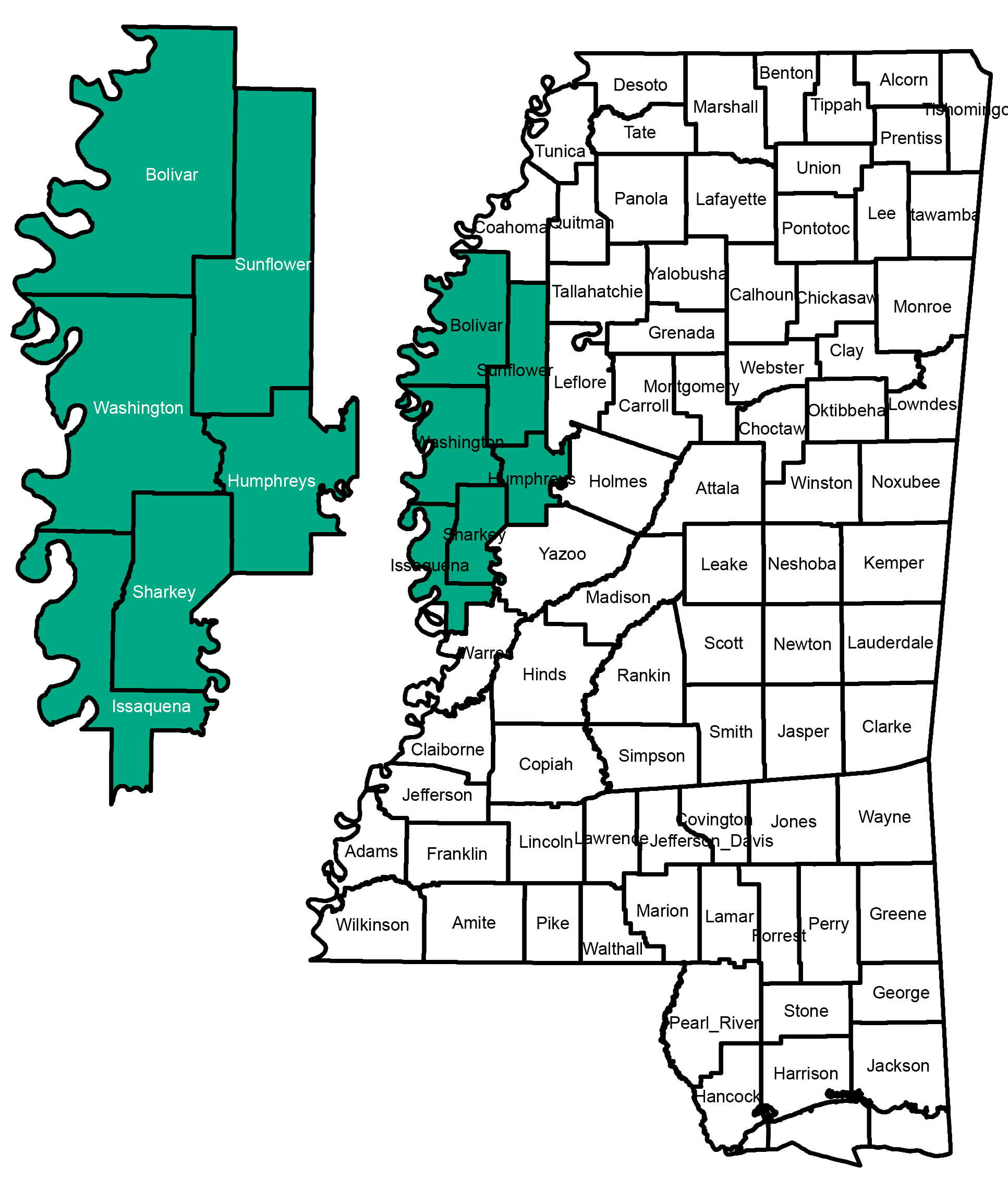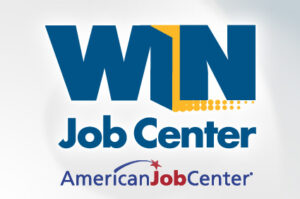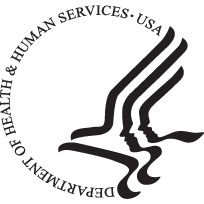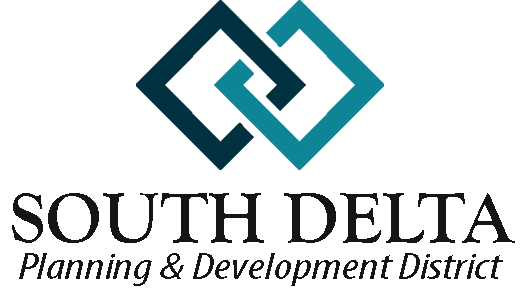ABOUT WORKFORCE DEVELOPMENT
South Delta Planning and Development District is the designated fiscal agent for the Delta Workforce Development Area (DWDA) Board, one of four workforce areas in the state. South Delta provides the administrative and fiscal support functions associated with the implementation of the Workforce Innovation and Opportunity Act (WIOA) in the 14 counties of the Delta WDA. Adult and Dislocated Worker WIOA services are provided primarily through the WIN Job Center system in the 14 counties. Minutes of DWDA board meetings are available upon request.

WIOA Youth RFP
FAQ
Revision: Questions will be accepted through February 10, 2025.
Notify offerors of outcomes (projected date) – 4/30/25.
Revision: Questions will be accepted through February 10, 2025.
Notify offerors of outcomes (projected date) – 4/30/25.
Assessments utilized by youth providers include, but are not limited to, TABE, WorkKeys, O’Net Interest Profiler, Report Cards, ACT Exams and Individual Service Strategy.
ISY – 18 to 40
OSY – 30 to 65
ISY – 18, 26, 40
OSY – 30, 35, 35, 60, 65
PY 2024, Quarter 1
Employment Rate 2nd Quarter After Exit – 91.7%
Employment Rate 4th Quarter After Exit – 88.8%
Credential Attainment within 4 Quarters After Exit – 83.9%
Median Earnings 2nd Quarter After Exit – $3,741.00
Measurable Skill Gains – 68.0%
Employment Rate 2nd Quarter After Exit – 86.80%
Employment Rate 4th Quarter After Exit – 85.70%
Credential Attainment within 4 Quarters After Exit – 82.30%%
Median Earnings 2nd Quarter After Exit – $3,390.00
Measurable Skill Gains – 70.0%
Pilot – Immersive Virtual Reality
At this time, a higher rate is not being considered.
No.
Youth ITA opportunities are not provided.
You may view the policies at our website: www.sdpdd.com
The attachments are on the website.
The proposer will identify a team location.
There is not a restriction on the maximum number of pages.
Our Mission
The business driven local board is responsible for the overall policy making and resource allocation for the Delta WDA. Federal funds awarded to the Delta WDA are used to provide individuals with the training and skills they need to get a job right here at home and provide employers with a skilled workforce they need to be successful. The Delta WDA is also responsible for establishing local performance standards and ensuring that performance standards are met; establishing a one-stop delivery system (WIN Job Centers) in the Delta; and selecting qualified youth providers.
Areas Served
The 14 counties of the DWDA include Bolivar, Carroll, Coahoma, Holmes, Humphreys, Issaquena, Leflore, Panola, Quitman, Sharkey, Sunflower, Tallahatchie, Tunica and Washington.
Lineman Training Program

WORKFORCE BOARD
Doug Aldridge
Johnny McRight
Nicholas Evans
Olanda Moton
Mike Blankenship
Brent Brasher
John Schmidt, Vice Chairman
George W. “Bunky” Butler, Chairman
Cameron Stubbs
Lindsey Peyton
Russell Stewart
Joe Azar
Michael Maloney
Don Green
Tamara Travis
Steve Rosenthal
Charles Finkley, Jr.
Cary Karlson
Sylvia Swan
James Kenwright
Hannah Aguzzi
OUR SERVICES

Training services are available primarily through the WIN Job Centers in the Delta area. These training services include: Customized Training, Individual Training Accounts, Internships and On-the-Job Training. Other specialized training to meet industry needs include the Electrical Lineman Training Program and the Manufacturing Skills Basic Information Training Program, both offered through MS Delta Community College.
Customized Training
Training that is designed to meet the specific requirements of an employer (including a group of employers); that is conducted with a commitment by the employer to employ an individual upon successful completion of the training; and for which the employer pays a significant portion of the cost of training, as determined by the local board involved.
Individual Training Accounts (ITA)
An ITA is an account established by a WIN Job Center operator on behalf of a WIOA eligible individual. ITAs are funded with adult and dislocated worker funds as authorized under Title I of WIOA. ITAs are to be used to purchase training services for skills in demand occupations from training providers on the statewide eligible training provider list. NOTE: Not all trainings listed are approved courses paid for in the local Delta Workforce Development Area due to policy limitations.
Internships
The goal of the internship program is to help eligible adults and dislocated workers gain practical work experience and sharpen their leadership skills while working and getting paid.
On-the-Job Training (OJT)
Defined as training by an employer that is provided to a paid participant while engaged in productive work in a job that: provides knowledge and skills essential to the full and adequate performance of the job; is made available through a program that provides reimbursement to the employer of up to 50% of the wage rate of the participant; for extraordinary costs of providing the training and additional supervision related to the training; and Is limited in duration, as appropriate to the occupation for which the participant is being trained, taking into account the content of training, the prior work experience of the participant, and the service strategy of the participant, as appropriate age.

The SDPDD Small Business Center meets with clients at no cost on a one-on-one basis for individuals interested in starting a small business, and/or expanding or purchasing an existing business. We advise entrepreneurs on the requirements for and methods of obtaining SBA loan guarantees, bank loans, FHLB of Dallas matching grants, and loans from other institutions including South Delta Planning and Development District. Popular areas of counseling requested are; Business Start-up Assistance, Business Plan Development, Identifying and accessing sources of capital, Business Valuation, and analyzing Financial Records.
| Mondays | Greenwood/Leflore/Carroll Economic Development Office in Greenwood |
|---|---|
| Tuesdays | Cleveland WIN Job Center |
| Wednesdays | South Delta PDD Workforce Office |
| Thursdays | Batesville WIN Job Center |
| Fridays | Indianola WIN Job CenterContact |
Contact Chuck Herring at 662-207-1103

Youth services are provided to out-of-school youth, ages 16-24, through community action agencies, one community college, one planning and development district in the 14 county workforce area.
- Tutoring, study skills training, instruction leading to the completion of the requirements for a secondary school diploma or its recognized equivalent (including a recognized certificate of attendance or similar document for individuals with disabilities) or for a recognized postsecondary credential.
- Alternative secondary school services; Alternative secondary schooling will address the needs of students, which typically cannot be met in a regular school program by utilizing appropriate class curriculum and/or HSE curriculum. This will also include non-traditional education, and serve as an adjunct to a regular school program, falling outside of regular, special education, or vocational education program(s).
- Paid and unpaid work experiences that have as a component academic and occupational education, which may include summer employment opportunities, pre-apprenticeship programs, internships and job shadowing and on-the-job training opportunities. Participants enrolled in paid work experience will receive wage payments at the wage of $8.00 per hour for a maximum of 200 hours.
- Occupational skills training is an organized program of study that provides specific vocational skills that lead to proficiency in performing actual tasks and technical functions required by certain occupational fields at entry, intermediate, or advanced levels. Occupational skills training must be outcome-oriented and focused on an occupational goal specified in the individual service strategy for the youth; be of sufficient duration to impart the skills needed to meet the occupational goal; and leads to the attainment of a recognized postsecondary credential.
- Education offered concurrently with and in the same context as workforce preparation activities and training for a specific occupation or occupational cluster reflects an integrated education and training model and describes how workforce preparation activities, basic academic skills, and hands-on occupational skills training are to be taught within the same time frame and connected to training in a specific occupation, occupational cluster, or career pathway.
- Leadership development opportunities, which may include community service and peer-centered activities encouraging responsibility and other positive social and civic behaviors. Activities may include exposure to post-secondary educational opportunities, community service projects, workshops, and service learning projects, peer centered activities which may include mentoring and tutoring, including determining priorities; citizenship training, including life skills training.
- Supportive Services enables an individual to participate in WIOA activities. These services include, but are not limited to, linkages to community services, assistance with transportation, child care, educational testing, uniforms or other appropriate work attire and work related tools. If participants are unable to obtain such services through non-WIOA programs, the youth provider may provide the needed supportive services.
- Adult mentoring is a formal relationship between a youth participant and an adult mentor that includes structured activities where the mentor offers guidance, support, and encouragement to develop the competence and character of the mentee for the period of participation and a subsequent period, for a total of not less than 12 months.
- Follow-up Services are critical services provided following a youth’s exit from the program to help ensure the youth is successful in employment and/or postsecondary education and training and are conducted for a minimum of 12 months. Follow-up services for youth may include supportive services, adult mentoring, financial literacy education, services that provide labor market and employment information about in-demand industry sectors or occupations available in the local area, such as career awareness, career counseling, and career exploration services; and activities that help youth prepare for and transition to postsecondary education and training.
- Comprehensive Guidance and Counseling which may include drug and alcohol abuse counseling, as well as referrals to counseling appropriate to the needs of the individual youth.
- Financial Literacy Education includes creating household budgets, initiating savings plans, and making informed financial decisions about education, retirement, home ownership, wealth building, or other savings goals. This element should also include managing spending, credit, and debt education, including credit card debt; awareness of the availability and significance of credit reports and credit scores in obtaining credit (including determining accuracy of credit reports).
- Services that provide labor market and employment information about in-demand industry sectors or occupations available in the local area, such as career awareness, career counseling, and career exploration services. Labor market information also identities employment opportunities, and provides knowledge of job market expectations, including education and skill requirements and potential earnings. Numerous tools and applications are available that are user-friendly and can be used to provide labor market and career information to youth. These tools can be used to help youth make appropriate decisions about education and careers.
- Activities that help youth prepare for and transition to postsecondary education and training. These services include helping youth explore postsecondary education options, including technical training schools, community colleges, 4-year colleges and universities, and registered apprenticeship programs. Additional services include, but are not limited to, assisting youth to prepare for SAT/ACT testing; assisting with college admission applications; searching and applying for scholarships and grants; filling out the proper financial aid applications and adhering to changing guidelines; and connecting youth to postsecondary education programs.
- Entrepreneurial skills training provides the basics of starting and operating a small business. This training helps youth develop the skills associated with entrepreneurship, such as the ability to take initiative, creatively seek out and identify business opportunities, develop budgets and forecast resource needs, understand various options for acquiring capital and the trade-offs associated with each option, and communicate effectively and market oneself and one’s ideas.

The Delta Workforce Development Area (DWDA), through subgrants with the MS Department of Employment Security, Coahoma Community College and Northwest MS Community College, provide client services to individuals through the Career Skills Training Education Pathways (Career STEPS) Program, an innovative employment preparation and placement program for individuals who meet the income requirements of household income up to 200% of the annually published federal poverty guidelines; are out of school and who are unemployed or underemployed. Services in the Career STEP Program include case management, job search, training, support services and work-based learning opportunities. This project is funded through the Mississippi Department of Human Services (MDHS) Temporary Assistance for Needy Families (TANF) FY 2021 Workforce Training and Education Program.
Contact Kenneth Gines at 662-335-6889 for more information on who to contact in your area.

